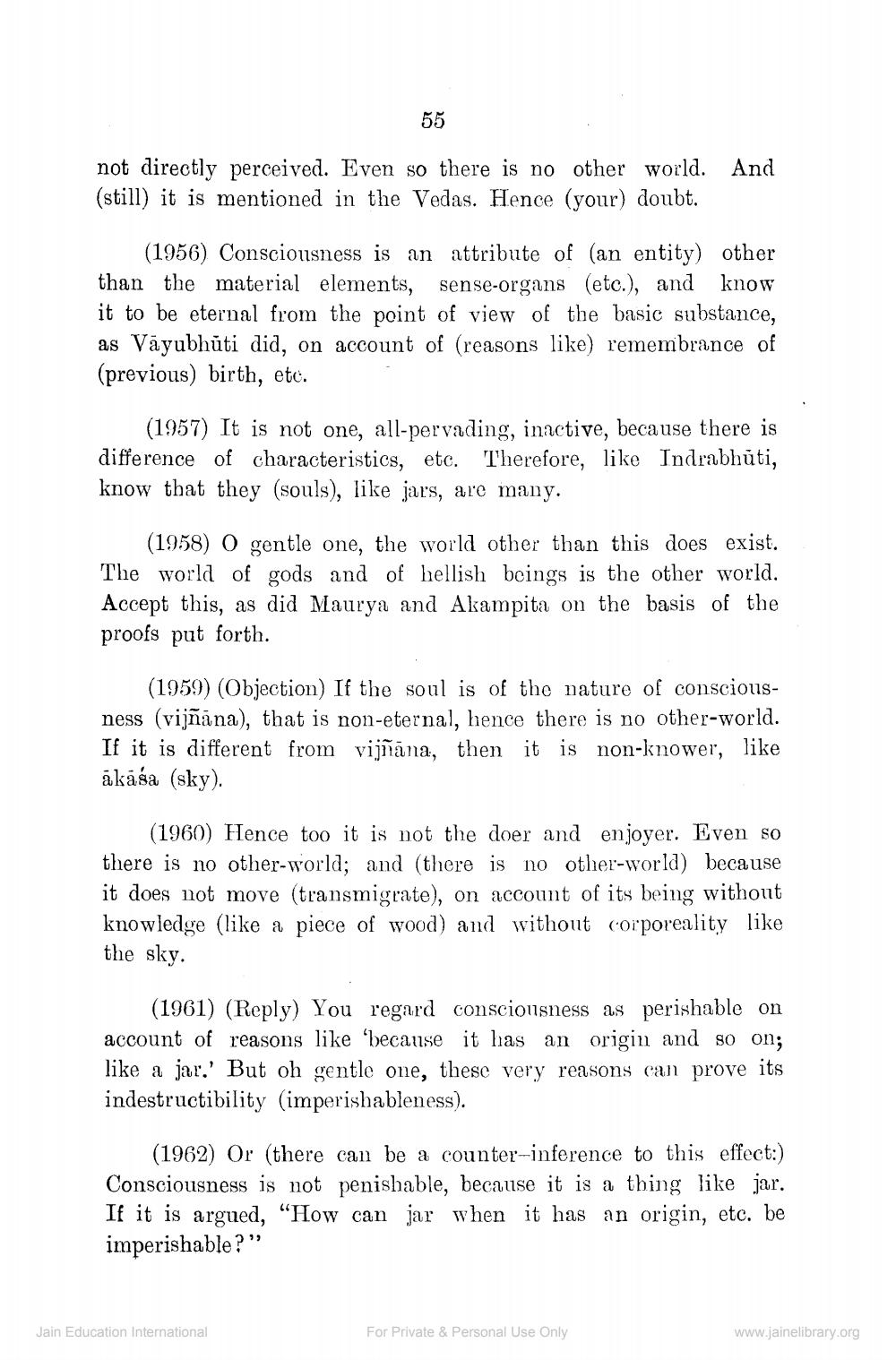________________
55
not directly perceived. Even so there is no other world. And (still) it is mentioned in the Vedas. Hence (your) doubt.
(1956) Consciousness is an attribute of (an entity) other than the material elements, sense-organs (etc.), and know it to be eternal from the point of view of the basic substance, as Vayubhuti did, on account of (reasons like) remembrance of (previous) birth, etc.
(1957) It is not one, all-pervading, inactive, because there is difference of characteristics, etc. Therefore, like Indrabhuti, know that they (souls), like jars, are many.
(1958) O gentle one, the world other than this does exist. The world of gods and of hellish beings is the other world. Accept this, as did Maurya and Akampita on the basis of the proofs put forth.
(1959) (Objection) If the soul is of the nature of consciousness (vijñāna), that is non-eternal, hence there is no other-world. If it is different from vijana, then it is non-knower, like ākāśa (sky).
(1960) Hence too it is not the doer and enjoyer. Even so there is no other-world; and (there is no other-world) because it does not move (transmigrate), on account of its being without knowledge (like a piece of wood) and without corporeality like the sky.
(1961) (Reply) You regard consciousness as perishable on account of reasons like 'because it has an origin and so on; like a jar.' But oh gentle one, these very reasons can prove its indestructibility (imperishableness).
(1962) Or (there can be a counter-inference to this effect:) Consciousness is not penishable, because it is a thing like jar. If it is argued, "How can jar when it has an origin, etc. be imperishable?"
Jain Education International
For Private & Personal Use Only
www.jainelibrary.org




